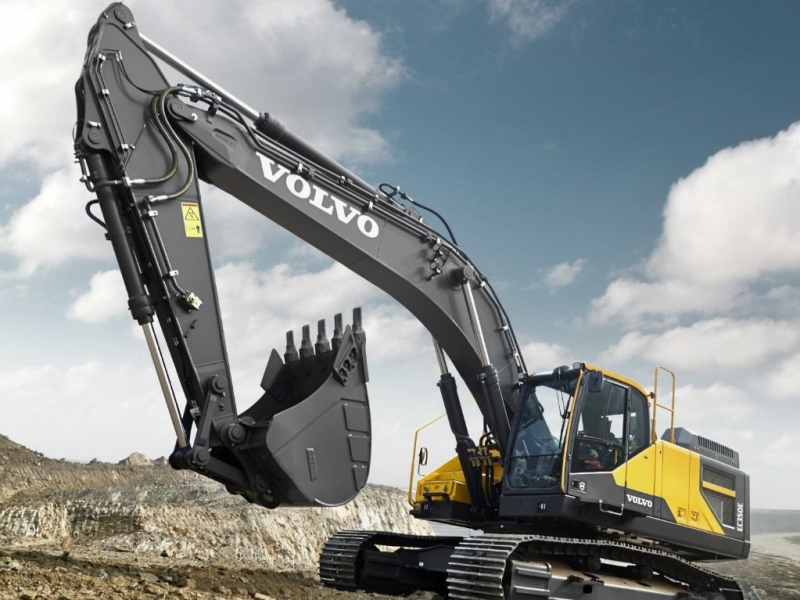VOLVO CONSTRUCTION EQUIPMENT – NEARLY TWO CENTURIES OF EXCITING INNOVATION

With more than 180 years of history, Volvo CE (which stands for Volvo Construction Equipment) is among the oldest brands on the market today. It all started with the shop 27-year-old Johan Theofron Munktell opened in 1832 in the Swedish town of Eskilstuna. The governors appointed him to help for the local industry’s development. Munktell’s former job in Stockholm was taken by another engineer named Jean Bolinder who went to England alongside his brother Carl Gherard in order to learn more about the engineering processes. Munktell did the same thing years prior to that. After Jean Bolinder came back to Sweden with his brother, the two of them started a company. Fast-forward a hundred years after Munktell initiated his endeavor in Eskilstuna when the Bolinder company relocated and eventually merges with Munktell, shaping the AB Bolinder-Munktell company which Volvo bought in 1950.
THE INNOVATIONS
Taking a look back: Munktell’s first real factory was opened in 1839, and 1844 was the exact year when the Bolinder brothers returned to Stockholm and established the Kungsholmens Gjuteri & Maskin Verkstad. Nine years later the first Swedish-built locomotive was designed and produced by Munktell. After years of successful endeavors and growth the Bolinder brothers became part of the team that was able to create the first submarine in the world capable of firing a torpedo below the water surface – this happened in 1880. The brothers created the first Swedish-designed combustion engine in 1893, known as Weyland’s patent).
The 20th century started with a bang for Munktell: he came up with a road roller propelled by steam in 1906, meaning that he was able to create construction machines before tractors became popular. In fact, he was the one to introduce the first tractor in Sweden just 7 years later.
AB Bolinder-Munktell was established in 1932 after the merge between the two companies. In the dawn of WWII, the newly-formed company added aircraft engines to their production lines. Volvo bought the company in 1950 and only four years later the first wheel loader fitted with an attachment device they ever built was introduced. The machine was among the first of its kind worldwide, too.
The articulated truck was shown for the first time in 1966. Six years later the new special design of the machine cabins was introduced. It featured a smart design protecting the operator in case of an accident. The rigid hauler product line was created in 1982. Three years later the VME Group was established, followed by Volvo’s partnership with Clark Equipment, which meant the Swedish brand had access to the U.S. market.
THE PORTFOLIO EXPANSION
The early 90s were a time of rapid growth of the product portfolio: dozers, wheel loaders and excavators were added after Volvo acquired a few other companies alongside buying all the VME shares. By 1997 the company had already began producing graders and heavy wheel-loaders that were extremely fuel-efficient. A pivotal point for the company was 1998 when they were able to acquire Samsung Heavy Industries’ construction machinery division.
In the early years of the 21st century, Volvo CE was able to introduce a completely new design for its backhoe loaders, followed by all-new skid-steer models. A new 70-ton excavator was put into production by 2005. Just a year later the first Volvo diesel-electric hybrid system was introduced.
The first in the world articulated truck with full suspension design was introduced in 2007, followed by their biggest yet 50-ton loader. That same year Volvo bought a Chinese manufacturer of road construction equipment. The company was able to buy Terex’s hauler manufacturing business seven years later.
A couple of years after that, Volvo showed their Co-Pilot system for the first time, followed by a state-of-the-art electric and fully autonomous load carrier concept.
In 2017 Volvo CE’s headquarters was moved from Belgium to Sweden and it will probably remain in Stockholm as long as the company stands. They announced that the work on electric machines and vehicles continues and a small fleet of electric excavators and loaders is expected on the market soon. The current portfolio of the brand includes different types and sizes of excavators and articulated trucks, as well as loaders, compact machines, road construction equipment, compactors, pavers and forestry machines.
Best prices for used machines Volvo uploaded in Sales Machinery here:
More info at: https://www.volvoce.com/global/en/